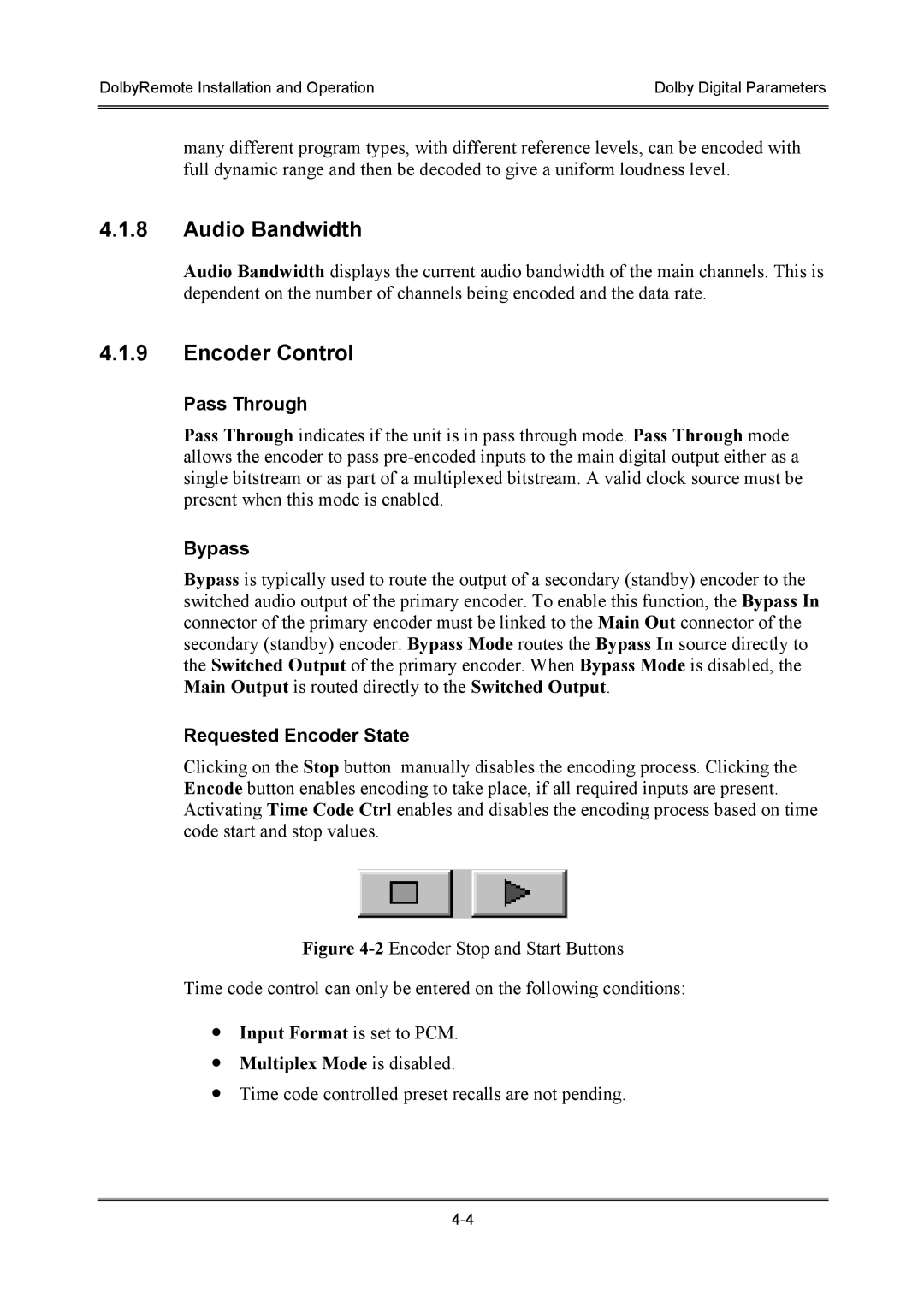
DolbyRemote Installation and Operation | Dolby Digital Parameters |
|
|
|
|
many different program types, with different reference levels, can be encoded with full dynamic range and then be decoded to give a uniform loudness level.
4.1.8Audio Bandwidth
Audio Bandwidth displays the current audio bandwidth of the main channels. This is dependent on the number of channels being encoded and the data rate.
4.1.9Encoder Control
Pass Through
Pass Through indicates if the unit is in pass through mode. Pass Through mode allows the encoder to pass
Bypass
Bypass is typically used to route the output of a secondary (standby) encoder to the switched audio output of the primary encoder. To enable this function, the Bypass In connector of the primary encoder must be linked to the Main Out connector of the secondary (standby) encoder. Bypass Mode routes the Bypass In source directly to the Switched Output of the primary encoder. When Bypass Mode is disabled, the Main Output is routed directly to the Switched Output.
Requested Encoder State
Clicking on the Stop button manually disables the encoding process. Clicking the Encode button enables encoding to take place, if all required inputs are present. Activating Time Code Ctrl enables and disables the encoding process based on time code start and stop values.
Figure 4-2 Encoder Stop and Start Buttons
Time code control can only be entered on the following conditions:
•Input Format is set to PCM.
•Multiplex Mode is disabled.
•Time code controlled preset recalls are not pending.
